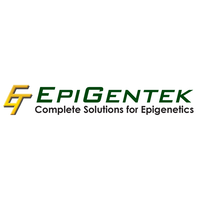Collagen IV alpha 1 / FITC /
Product Details
| Description | COL4A1 Polyclonal Antibody, FITC Conjugated. This antibody is a Rabbit IgG that reacts with Human. Uniprot ID is P02462. | |
|---|---|---|
| Conjugate | FITC | |
| Clone | ||
| Target Species | Human | |
| Applications | ELISA | |
| Supplier | Epigentek | |
| Catalog # | Sign in to view product details, citations, and spectra | |
| Size | ||
| Price | ||
| Antigen | ||
| Host | ||
| Isotype |
About Collagen IV alpha 1
This gene encodes a type IV collagen alpha protein. Type IV collagen proteins are integral components of basement membranes. This gene shares a bidirectional promoter with a paralogous gene on the opposite strand. The protein consists of an amino-terminal 7S domain, a triple-helix forming collagenous domain, and a carboxy-terminal non-collagenous domain. It functions as part of a heterotrimer and interacts with other extracellular matrix components such as perlecans, proteoglycans, and laminins. In addition, proteolytic cleavage of the non-collagenous carboxy-terminal domain results in a biologically active fragment known as arresten, which has anti-angiogenic and tumor suppressor properties. Mutations in this gene cause porencephaly, cerebrovascular disease, and renal and muscular defects. Alternative splicing results in multiple transcript variants. [provided by RefSeq, Dec 2014]
This gene encodes a type IV collagen alpha protein. Type IV collagen proteins are integral components of basement membranes. This gene shares a bidirectional promoter with a paralogous gene on the opposite strand. The protein consists of an amino-terminal 7S domain, a triple-helix forming collagenous domain, and a carboxy-terminal non-collagenous domain. It functions as part of a heterotrimer and interacts with other extracellular matrix components such as perlecans, proteoglycans, and laminins. In addition, proteolytic cleavage of the non-collagenous carboxy-terminal domain results in a biologically active fragment known as arresten, which has anti-angiogenic and tumor suppressor properties. Mutations in this gene cause porencephaly, cerebrovascular disease, and renal and muscular defects. Alternative splicing results in multiple transcript variants. [provided by RefSeq, Dec 2014]
About FITC
Fluorescein isothiocyanate (FITC) has an excitation peak at 495 nm and an emission peak at 519 nm. The name FITC is a misnomer in that the isothiocyanate is a reactive form of this dye. Once FITC is conjugated to an antibody, it is simply Fluorescein conjugated. FITC is one of the most widely used dyes for fluorescent applications, therefore most instruments come standard with a 488 nm laser and FITC filter set up. FITC is commonly conjugated to secondary antibodies and used in applications such as flow cytometry, immunocytochemistry, and immunohistochemistry. FITC is relatively dim, sensitive to photobleaching and it is susceptible to changes is pH. There are better performing alternatives to FITC, like Vio®Bright 515, Alexa Fluor™ 488, iFluor® 488, CF®488A and DY-488. FITC is a long-time generic dye with no sole manufacturer or trademark.
Fluorescein isothiocyanate (FITC) has an excitation peak at 495 nm and an emission peak at 519 nm. The name FITC is a misnomer in that the isothiocyanate is a reactive form of this dye. Once FITC is conjugated to an antibody, it is simply Fluorescein conjugated. FITC is one of the most widely used dyes for fluorescent applications, therefore most instruments come standard with a 488 nm laser and FITC filter set up. FITC is commonly conjugated to secondary antibodies and used in applications such as flow cytometry, immunocytochemistry, and immunohistochemistry. FITC is relatively dim, sensitive to photobleaching and it is susceptible to changes is pH. There are better performing alternatives to FITC, like Vio®Bright 515, Alexa Fluor™ 488, iFluor® 488, CF®488A and DY-488. FITC is a long-time generic dye with no sole manufacturer or trademark.
Experiment Design Tools
Panel Builders
Looking to design a Microscopy or Flow Cytometry experiment?
Validation References
Reviews & Ratings
| Reviews |
|---|
Looking for more options?
223 Collagen IV alpha 1 antibodies from over 15 suppliers available with over 37 conjugates.





